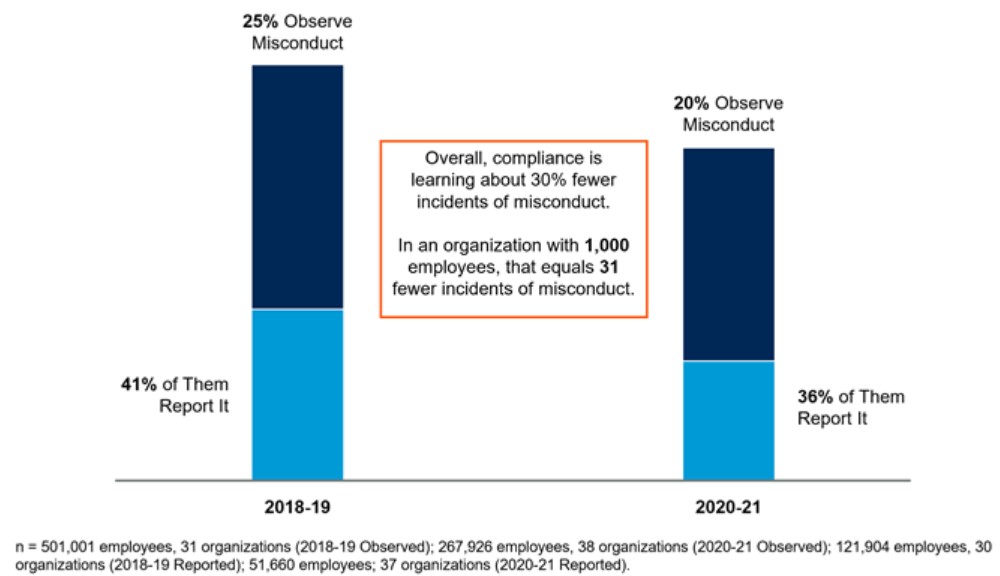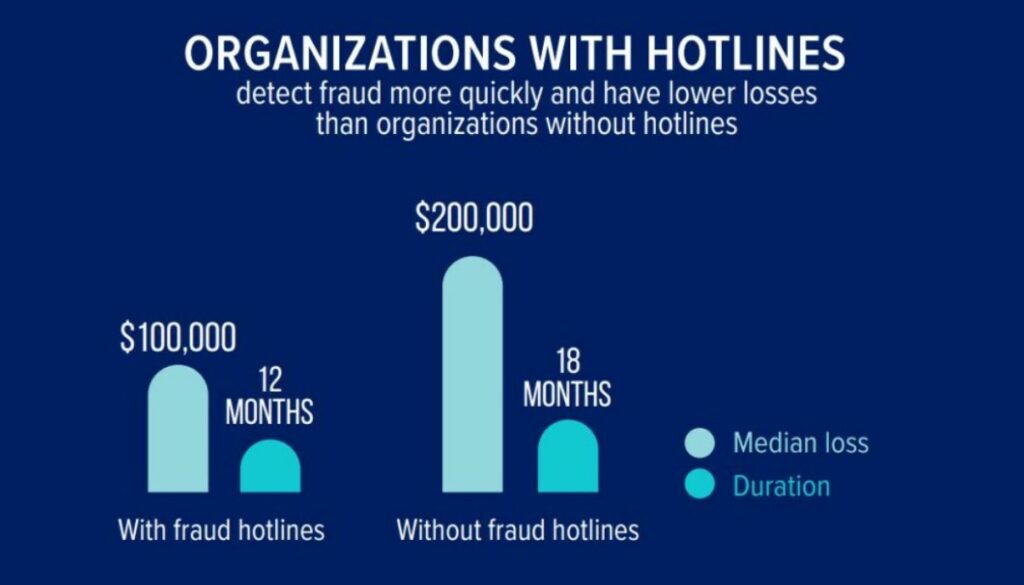Book A Demo
To book a demo please complete the form and we will come back to you shortly.
To book a demo please complete the form and we will come back to you shortly.
New Zealand

Surging reports of workplace incivility, employee ambivalence about reporting misconduct and a raft of new international whistleblower legislation, here’s our October round up of the latest developments and research in the world of ethics and compliance…
New Zealand
New Zealand’s Protected Disclosures (Protection of Whistleblowers) Act 2022 is now law. It increases protections for whistleblowers and extends the grounds under which protected disclosures can be made.
The law extends the definition of ‘serious wrongdoing’ to include any act, omission or course of conduct in or by an organisation that poses a “serious risk to the health and safety of any individual”. This means that ‘serious wrongdoing’ could now include instances of bullying and harassment in the workplace.
To discuss how the changes affect your organisation, contact Report it Now.
Australia
Following the Australian Human Rights Commission’s Respect@Work inquiry into sexual harassment, the Federal Government is preparing to adopt seven more of the 55 proposed legislative changes, to create a new legal and regulatory model that is “evidence-based, victim-focused and framed through a gender and intersectional lens”.
The changes aim to shift current approaches to sexual harassment in the workplace from a reactive, complaints-based approach, to a “postive duty”, and one which requires preventive actions from employers.
Compliance will be enforced by The Queensland Human Rights Commission.
“Up until now, Australian workplaces have not sufficiently addressed sex discrimination, harassment and victimisation,” says Report It Now’s Petrina Maxwell.
“The new legislation puts the responsibility squarely on employers to prevent sexual harassment in the workplace, and that goes beyond updating policies and procedures.”
“The legislation is expected to be passed at any time, so businesses should make sure they’re compliant now,” says Maxwell.
Japan
In June this year, Japan made amendments to its Whistleblower Protection Act, the law that provides protection for employees who have reported ethical issues in the workplace.
The amended act now includes a mandatory obligation for companies of a certain size to implement a whistleblower system and protect whistleblowers.
The new legislation however only loosely applies to smaller companies – operators with 300 or less employees are only required to “make efforts” to establish a whistleblowing system.
New whistleblowing regimes have also been established in Dubai, and a new Whistleblower Protection Act is currently in legislative process in Germany.
Remote working is continuing to change the workplace landscape. According to research from Gartner, remote employees observe about 11% less misconduct than their in-office peers. Instances of bullying, intimidation and unwanted behaviour however, is around 7% higher for remote workers, says Gartner.
“The increase in remote and hybrid working practices has reduced the amount of misconduct and the potential to observe it,” comments Audet, “however, what we see in the data is more complex: misconduct such as gifts and entertainment, and travel abuse is falling, but things such as intimidation and unwanted behaviour are on the rise.”
Not only are remote workers less likely to observe misconduct, they are also less likely to report it when they do.
“Since the pandemic, employees are a lot less likely to speak up if they sense something is wrong,” says Chris Audet, senior director, research at Gartner.
“A culture where employees don’t think others are reporting misconduct has negative implications for the business. Employees are less likely to see their company as ethical, less likely to think the company cares about them, and less likely to be engaged in their jobs.”

And the trend doesn’t just apply to remote workers. Around half of employees don’t feel a moral obligation to report compliance violations. These employees say they are taking a pragmatic – rather than idealistic – approach to reporting.
“It may surprise many compliance leaders to know that just 54% of employees feel that reporting workplace misconduct is the right thing to do,” says Chris Audet, senior director, research, at Gartner.
“Employees understand it is what they are supposed to do but in many cases, they aren’t sure that doing so will work out well for them or their teams, so they choose to keep quiet.”
Data from NAVEX’s 2022 benchmark report shows a sharp rise in workplace civility-related issues, especially retaliation, harassment, and discrimination.
“Reports about harassment, discrimination and retaliation are all rising,” says the report, “and employees now have numerous incentives to take their concerns outside the company to regulators, plaintiff lawyers or the media.”
“Compliance officers should look at their training materials closely – including training
specifically for managers, who play a crucial role receiving reports and preventing retaliation.”
With changing employee attitudes, a pressured labour market and the disruption of the Covid pandemic, a new emboldened employee is emerging. In fact, fewer and fewer whistleblowers are choose to report anonymously.
“Noting ‘The Great Resignation’ and the intense hiring competition, employees who are confident that they could more easily secure other employment may be more emboldened to speak up,” says the report.
Research continues to show that multiple channels for whistleblowing – especially digital channels – is crucial for promoting a healthy culture where ethical reporting is normalised.
Globally, 46% of organisations say they receive the majority of their reports via web and mobile whistleblowing channels. Telephone hotlines are th second most prevalent method at 30%, up from 2020 and close to pre-pandemic levels.
As reported earlier in the year, the presence of anti-fraud controls is closely associated with lower losses from fraud and quicker fraud detection, says the ACFE Report to the Nations 2022.

“With their high success rate and low implementation cost, all organisations should have a tip hotline or mechanism to report fraud,” says the report. “While in the past hotlines were phone lines that employees could call to anonymously report fraud, hotlines today can include forms on a webpage or a special email set up to collect tips.”